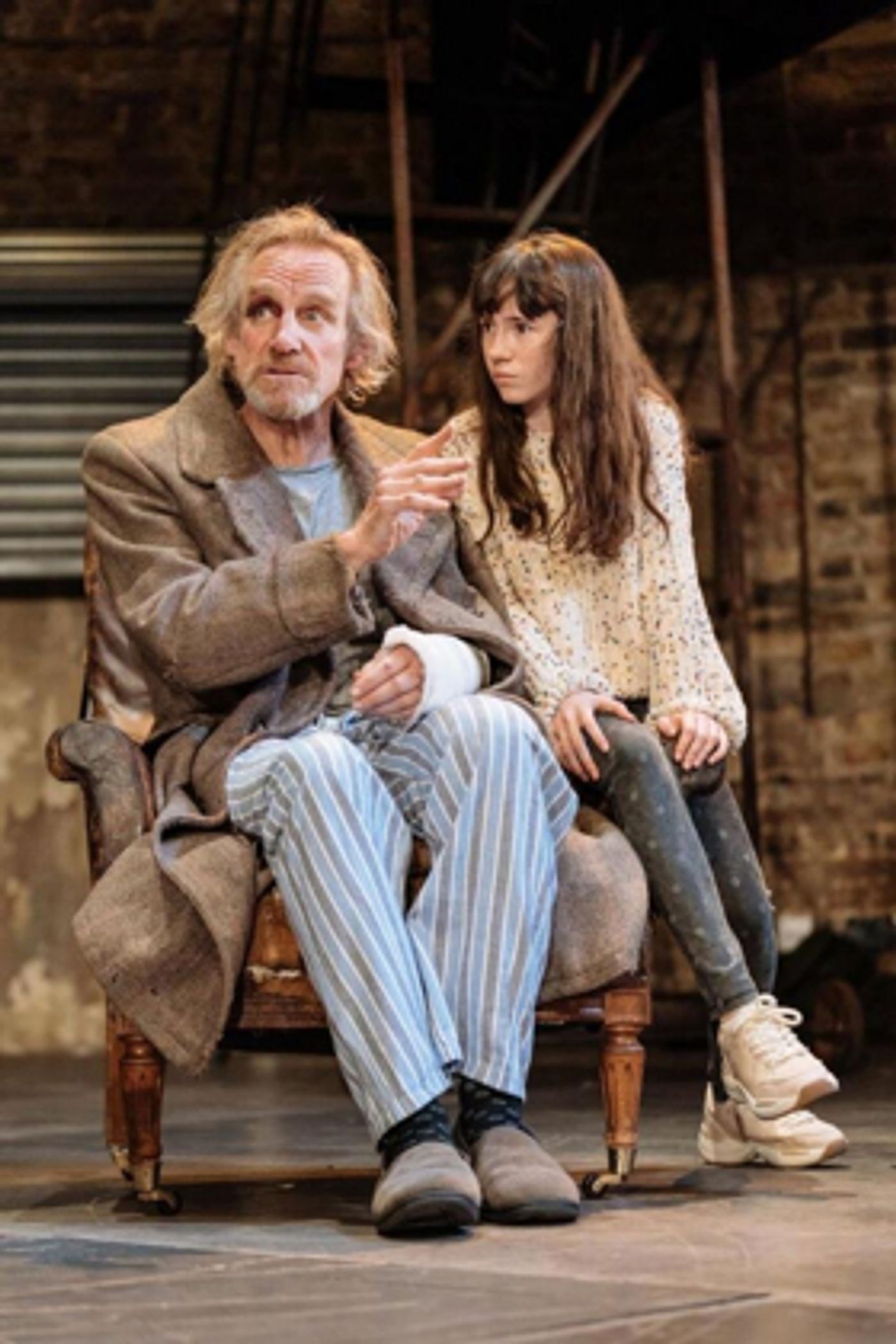Review: THE WILD DUCK, Almeida Theatre

![]() An actor stands on stage, mic in hand, the lights up, and addresses us directly - a reminder to turn off the phone leading to a digression about the ubiquity of the smartphone camera and what it records.
An actor stands on stage, mic in hand, the lights up, and addresses us directly - a reminder to turn off the phone leading to a digression about the ubiquity of the smartphone camera and what it records.
Then there's a bit more philosophical musing on whether what we're about to see is what Ibsen wrote - turns out that it's not, because even the language in which he wrote it has died out. And there's other stuff too. It's a bit tricksy, a bit slow and it was all done rather better by Jorge Luis Borges 50 or so years ago.
But once we're underway properly, Robert Icke's new version of Ibsen's play picks up and, though the mic never leaves the stage (various characters voicing their unseen thoughts to us in flurries of unnecessary exposition), the tangled threads begin to unravel - for good and (mainly) for ill.
Gregory hates his factory-owning father Charles, who provides money (provoked by a sense of guilt) to Francis, whose accounting for his firm sent him to prison for 10 years. Some of that guilt money supports Francis's son, James, in his photography business which he runs with his wife, Gina, while their precocious child, Hedwig, buzzes around them.
But there are secrets in their pasts, carefully covered up through combinations of knowledge suppressed and knowledge never revealed, people getting by as they do, fooling themselves just enough to rub along. Gregory, brimming with idealistic fervour after 15 years self-imposed exile, is determined to throw cleansing light into those dark corners and, in so doing, free everyone from such burdens. Of course, things don't work out quite as he intended - or did they?
There's almost no time to consider the family drama being played out as one's mind tumbles through the personal accommodations one has made with the truth and its bending, its ignoring, its revealing in the current political climate - and with the explosion of truth-telling set off by #MeToo. Truth is good right?
Well, yes - but so is stability, and that can often rest on something rather less noble than truth. The collateral damage attendant on such fixation on "hanging one's dirty washing on the line" (there's a reason why that's a cliché) becomes all too evident by the climax of the play.
Edward Hogg gives us a James twitching with fear at the prospect of losing his self-respect, a loving father and husband, but one whose pride and ego need the constant oxygen of falsehood affirmation to stay afloat. Hogg demands our pity, but he also provokes a disgust for the selfish prism through which he sees the world - #Me rather than #MeToo.
Lyndsey Marshal provides Gina with a more nuanced approach to the world, although I failed to see how her patience could possibly have lasted so long.
Kevin Harvey pulls off the not inconsiderable trick of brokering a Liverpool accent into a vehicle of warm inclusivity (I should know, after all) before we wise up to the fact that Gregory is damaged to the point of no return, neurosis curdling into psychosis. Nicholas Day plays his father, Charles, as an almost Dickensian caricature of entitlement - but we all know men like him.
The stage really lights up whenever the oldest and youngest members of the cast hove into view. Nicholas Farrell is tremendous as Francis, early stage dementia clouding his memory but with his decency still intact.
Clara Reed is wonderfully believable as Hedwig, by turns loving, inquisitive, frightened, credulous and ultimately tragic. Though still of school age herself, the play would collapse if we did not buy into her performance 100% - and we do.
There's a couple of fine theatrical moments (hat tip to Bunny Christie's design) and there's all that intellectual nourishment to get through, but there's also something indefinably absent. The comedy, always so present in Chekhov for example, comes in bursts, laughter breaking out as much as a nervous reaction as a natural consequence of the narrative.
I'm not sure Ibsen intended the comic to be quite as subterranean as Icke's adaptation buries it, but we're seeing a play for today and not for the 19th century, as we're told at the very start.
And ain't that the truth?
The Wild Duck continues at the Almeida Theatre until 1 December.
Photo Manuel Harlan
Reader Reviews
Videos

